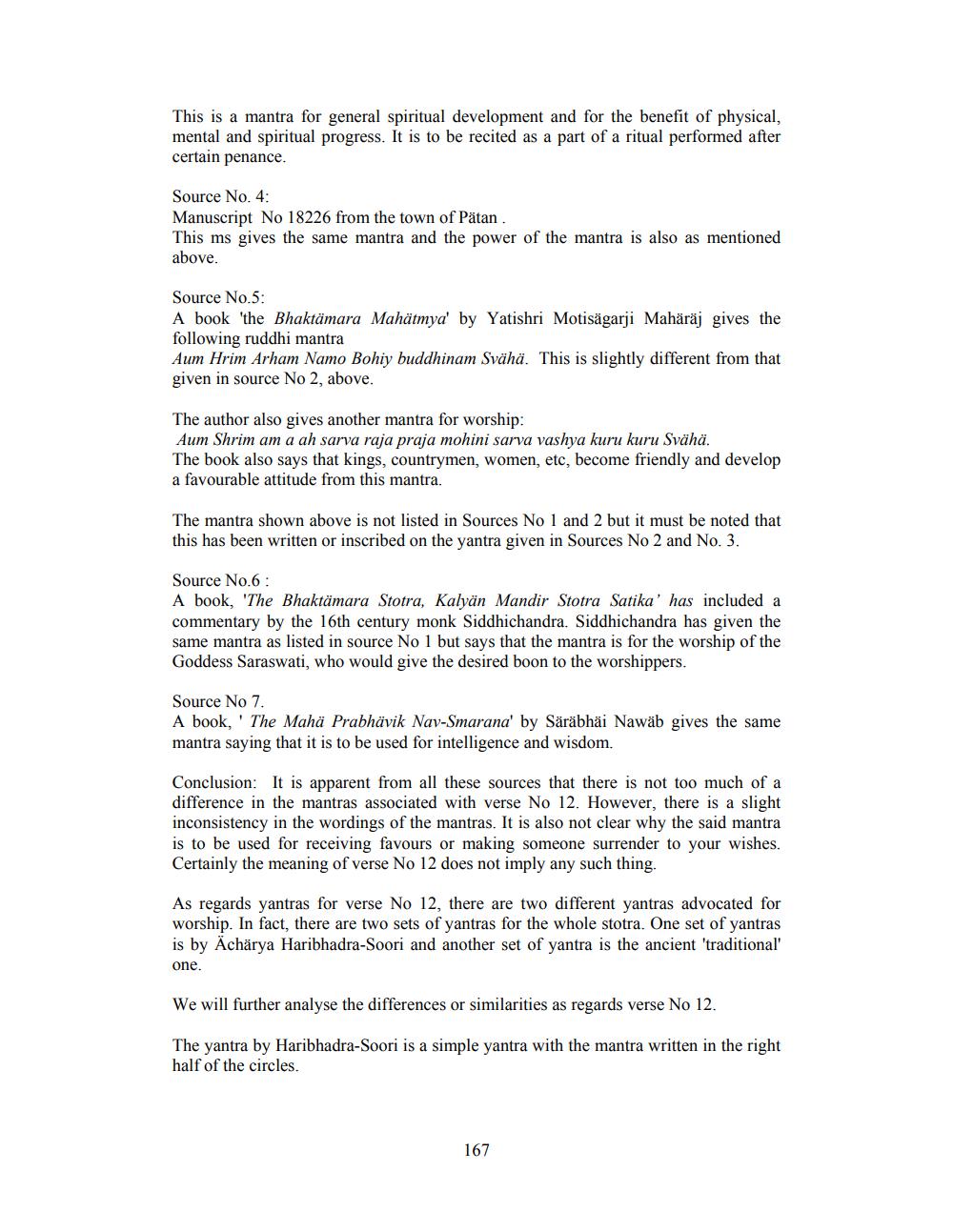________________
This is a mantra for general spiritual development and for the benefit of physical, mental and spiritual progress. It is to be recited as a part of a ritual performed after certain penance.
Source No. 4: Manuscript No 18226 from the town of Pätan. This ms gives the same mantra and the power of the mantra is also as mentioned above.
Source No.5: A book 'the Bhaktämara Mahätmya' by Yatishri Motisägarji Mahäräj gives the following ruddhi mantra Aum Hrim Arham Namo Bohiy buddhinam Svähä. This is slightly different from that given in source No 2, above.
The author also gives another mantra for worship: Aum Shrim am a ah sarva raja praja mohini sarva vashya kuru kuru Svähä. The book also says that kings, countrymen, women, etc, become friendly and develop a favourable attitude from this mantra.
The mantra shown above is not listed in Sources No 1 and 2 but it must be noted that this has been written or inscribed on the yantra given in Sources No 2 and No. 3.
Source No.6: A book, 'The Bhaktämara Stotra, Kalyan Mandir Stotra Satika' has included a commentary by the 16th century monk Siddhichandra. Siddhichandra has given the same mantra as listed in source No 1 but says that the mantra is for the worship of the Goddess Saraswati, who would give the desired boon to the worshippers.
Source No 7. A book, 'The Maha Prabhävik Nav-Smarana' by Säräbhäi Nawäb gives the same mantra saying that it is to be used for intelligence and wisdom.
Conclusion: It is apparent from all these sources that there is not too much of a difference in the mantras associated with verse No 12. However, there is a slight inconsistency in the wordings of the mantras. It is also not clear why the said mantra is to be used for receiving favours or making someone surrender to your wishes. Certainly the meaning of verse No 12 does not imply any such thing.
As regards yantras for verse No 12, there are two different yantras advocated for worship. In fact, there are two sets of yantras for the whole stotra. One set of yantras is by Ächärya Haribhadra-Soori and another set of yantra is the ancient traditional' one.
We will further analyse the differences or similarities as regards verse No 12.
The yantra by Haribhadra-Soori is a simple yantra with the mantra written in the right half of the circles.
167




